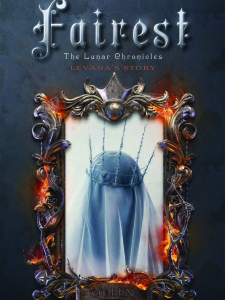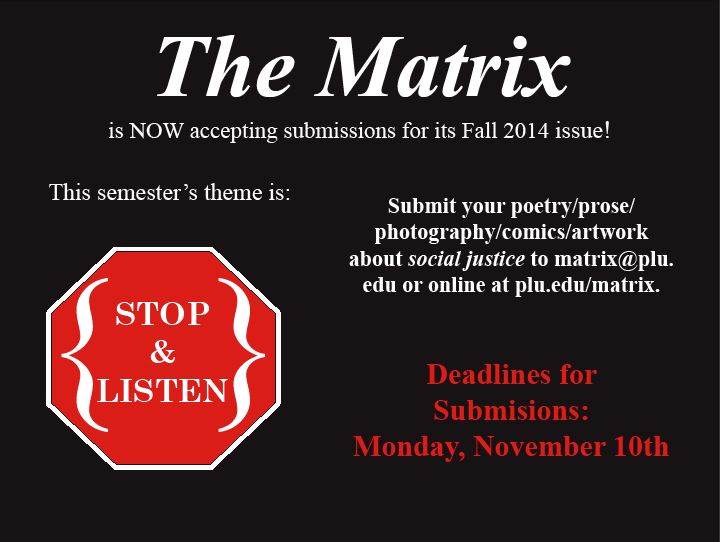Kaitlyn Hall, Copy Editor
Mirror, mirror on the wall, who is the fairest of them all?

6 p.m. Jan. 27
Tacoma Public Library
1102 Tacoma Ave. S.
Tacoma, Wash.
Author Marissa Meyer, a Pacific Lutheran University alumna, seeks to answer this age-old question with the release of her 272-page novella, “Fairest,” Jan. 27, 2015, as part of The Lunar Chronicles series.
“Fairest,” detailing the backstory of maleficent Lunar Queen Levana, departs from the timeline of Lunar Chronicles novels “Cinder,” “Scarlet” and “Cress,” which follow the titular characters as they plot to overthrow and try to escape Levana.
Though she’s now an internationally-read author, Meyer overcomes similar challenges and celebrates similar victories as those of PLU students and community members.
Fans of Meyer’s The Lunar Chronicles will have two novels to look forward to in 2015: “Fairest” and “Winter,” the Lunar Chronicles conclusion based on “Snow White and the Seven Dwarves.”
Meyer’s “Heartless,” a prequel to “Alice’s Adventures in Wonderland” that explores the backstory of the Queen of Hearts, will be published in early 2016.
How have you coped with rejection you’ve faced as a student or an author?
I think it’s so important to maintain perspective when you’re working in any sort of creative field. It’s all subjective!
I had a fairly fast road to publication, ignoring the 15 years in which I was learning the craft of writing. Once I finally decided to send my work to agents and publishers, it took less than three months to receive a book deal. So I didn’t go through the period of painful rejections that a lot of authors experience.
However, now that the books are out in the world, not every review is glowing and not every reader is a fan. But that’s okay—you have to hope that your book finds the readers it was meant for, and understand that it wasn’t written to please everyone.
Some books that I love passionately have one-star reviews on GoodReads; other books that I hated just as passionately have humongous, enthusiastic fanbases.
Write the books you love and hope that they will find their readership. That’s the best we can do.
Why did you choose to tell Levana’s story in “Fairest?”
I was trying to write “Winter,” the final book of The Lunar Chronicles, but I kept hitting a wall with it. It eventually occurred to me that I was getting stuck because I didn’t yet have a good enough grasp on the villain, Queen Levana, and her motivations, as well as the relationship she has with Princess Winter, her stepdaughter.
I realized that to finish “Winter” and write the series conclusion authentically, I needed to explore Levana’s history more.
I’d known for a couple of years that I wanted to write her story at some point, so I decided to take a break from “Winter” to write it.
I wrote it in only a week—it was the fastest thing I’ve ever written and required surprisingly little revisions, which has not been the case for my other novels, so I think it was the right time. And after that, I was able to go back to “Winter” and things started coming together a lot more easily.
What do you draw inspiration from?
Inspiration can come from anywhere: a great book, or sometimes even a bad one, a movie, some poignant song lyrics, a dream, a conversation, or a magazine article—you just never know.
I think it’s important as writers to get out in the world and explore. I love taking classes or trying new things, like going on a hot air balloon ride or taking a trapeze-flying class. It might not make it into a book someday, but, then, it just might.
Do you have a best piece of advice for writers?
There are a lot of variations on this advice said by many brilliant writers: Give yourself permission to write something terrible.
Don’t stress yourself out over whether it’s “good” or “great” or “perfect” – that’s an easy way to never get anything written at all. Just write.
Write your purple prose full of exclamation points and adverbs and all the things they tell us not to write.
Write cardboard character. Write cliches and predictable plots. Because you can always go back and rewrite and revise and edit and fix.
You can always make it better. But, first, you have to write it.
How has The Lunar Chronicles changed your life?
There are a lot of obvious changes—I’m a full-time writer now, whereas I was working as a freelance proofreader when the series sold.
I get to travel and meet readers a lot. I receive fan mail. I got to pay off my student loans, which was a cause for celebration.
But on a more internal, creative level, seeing these books brought to life has given me so much confidence as a writer.
Not that I think everything I write is brilliant or everything I write is going to be a winner—far from it—but at least now when I’m looking at a blank page getting ready to embark on a new story idea, I know that I’m capable of finishing it.
I know it’ll be tough and every book will be its own journey, but I can look back and say: See, Marissa, you’ve been here before. You’ve done this. You know you can do it again.


















